Spend the night in Hanoi to save people
Present at the program Meeting with typical rare blood type donors in 2023 held on December 17 at the National Institute of Hematology and Blood Transfusion, Ms. Dinh Thi Thom (33 years old, Hung Yen ) said that this year, she had donated blood 4 times and no longer met the "standard" to donate again.
She shared that in 2019, during a visit to the Central Maternity Hospital, she learned that she had a rare Rh(D) negative blood type.
Since then, she joined the club of rare blood type blood donors in the North.
At first, she did not know much about the meaning of "living blood bank", when doctors and people in the club always reminded each other to take care of their health, eat and drink in moderation, because at any time someone needs blood, they must be ready.
Until receiving a "hot call" from the Central Institute of Hematology and Blood Transfusion, at 8:30 p.m., urgently needing blood for a very serious traffic accident patient at Viet Duc Hospital.
"Luckily, the patient survived. I feel very happy and see even more the significance of my blood type," said Ms. Thom.
Whenever she receives a call asking her to donate blood, she makes arrangements to go. In 2023, she will no longer be eligible to donate blood and will have to wait until she recovers before she can donate again.
Also participating in the rare blood club, Hai Anh (30 years old) who is working at a clinic in Nam Dinh is always in the mindset of "keeping himself" healthy, because he doesn't know when someone will need his blood.
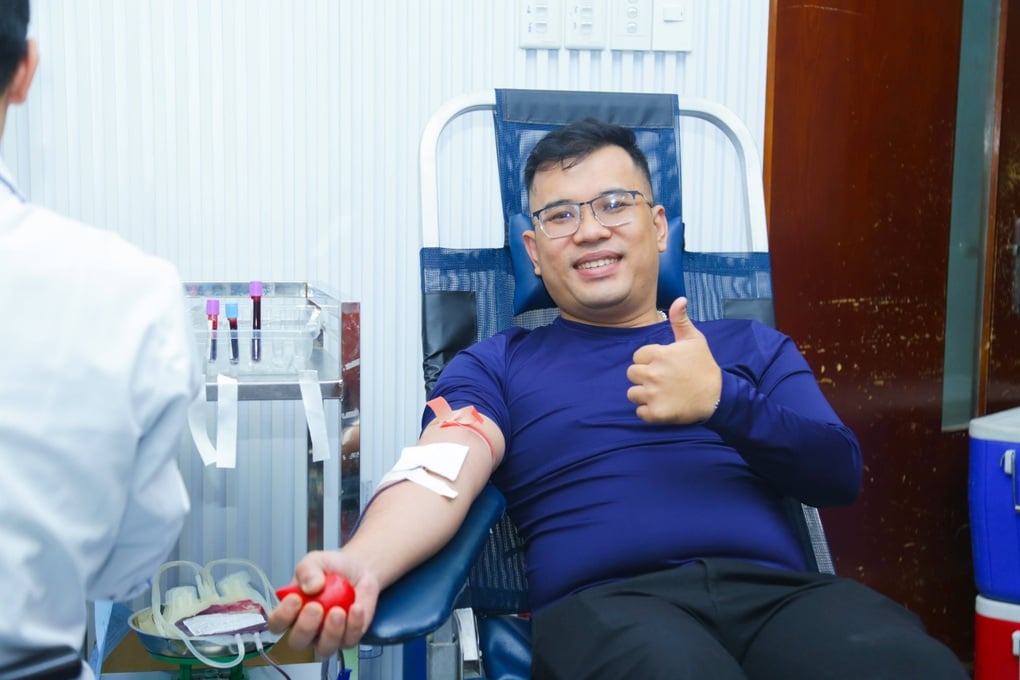
Mr. Hai Anh donated blood on the morning of December 17 at the National Institute of Hematology and Blood Transfusion (Photo: Tran Chien).
Since his second year of university, when he found out he had a rare blood type, he has donated blood 20 times.
Recalling a memory, his voice dropped, filled with remorse. He said, once he received a phone call about an urgent need for rare blood at Viet Duc Hospital, he traveled more than 100km to the hospital, but when he arrived, the patient had passed away.
Grateful to the "living blood banks"
On December 17, the National Institute of Hematology and Blood Transfusion organized a meeting with typical rare blood type donors in 2023.
Dr. Tran Ngoc Que, Director of the National Blood Center, National Institute of Hematology and Blood Transfusion, said that in 2023, the demand for blood and blood products at hospitals in the Northern region will increase by about 10% compared to the previous year, in which the demand for rare blood products will also increase dramatically.
The National Institute of Hematology and Blood Transfusion has received an estimated 668 rare blood product units in 2023 from medical facilities. This number is nearly double that of 2022 and is unprecedentedly high.
The peak was from after the Lunar New Year to mid-March this year. In just 2 months, the National Institute of Hematology and Blood Transfusion received an estimated request to supply 180 units of blood and blood products of rare blood types (half of the whole year of 2022), both blood and platelets of rare blood type O Rh(D) negative were needed more.
To meet the above demand, the available amount of rare blood types can only meet 30% of this demand, the Institute must mobilize and call people to donate rare blood types for the rest.
In particular, platelet preparations only have a maximum shelf life of 5 days, so the Institute cannot stock them up in advance but can only mobilize them when there is a plan. Platelet donation requires stricter standards, and some members are invited to donate again immediately after just having enough time to donate again.
"We are grateful to the "living blood banks". They are people of all ages and professions, always conscious of maintaining their health so that when someone needs them, they can donate blood, at any time."

People with rare blood types were honored at the event (Photo: Tran Chien).
Dr. Que also shared the reality of relatives and family members of people with rare blood types being very confused and worried when their loved ones need blood.
"In many places, when there is an emergency case of a rare blood type, the family members proactively post a call on social networks or call the person with the rare blood type directly, leading to information interference.
There were cases where the hospital mobilized blood donors and provided enough blood, but because of the information posted, many people thought that it would take more effort to get there.
Or the doctor only informed that the patient had a rare blood type and might need a blood transfusion but there was no indication yet, but the family posted information calling for blood donations.
Therefore, the National Institute of Hematology and Blood Transfusion does not encourage the community to post information about needing rare blood on social networks. For patients with rare blood who need blood transfusion, hospitals are connected so that the National Institute of Hematology and Blood Transfusion can coordinate and call on people with rare blood to donate blood," Dr. Que informed.
Source



![[Photo] Binh Trieu 1 Bridge has been completed, raised by 1.1m, and will open to traffic at the end of November.](https://vphoto.vietnam.vn/thumb/1200x675/vietnam/resource/IMAGE/2025/10/2/a6549e2a3b5848a1ba76a1ded6141fae)






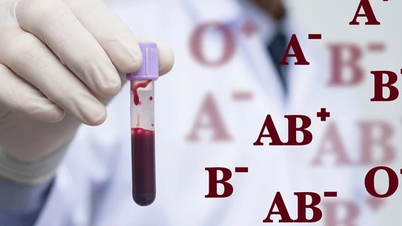


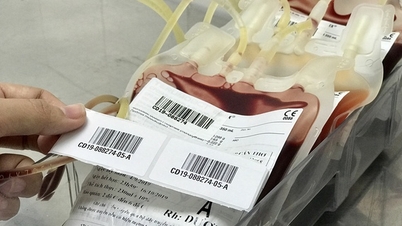




















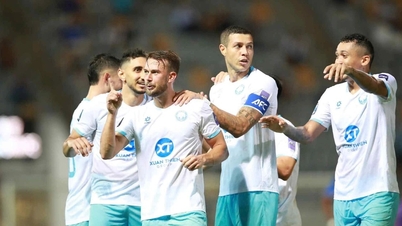













































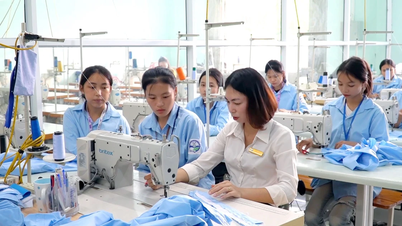

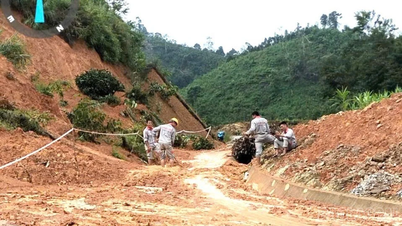
















Comment (0)